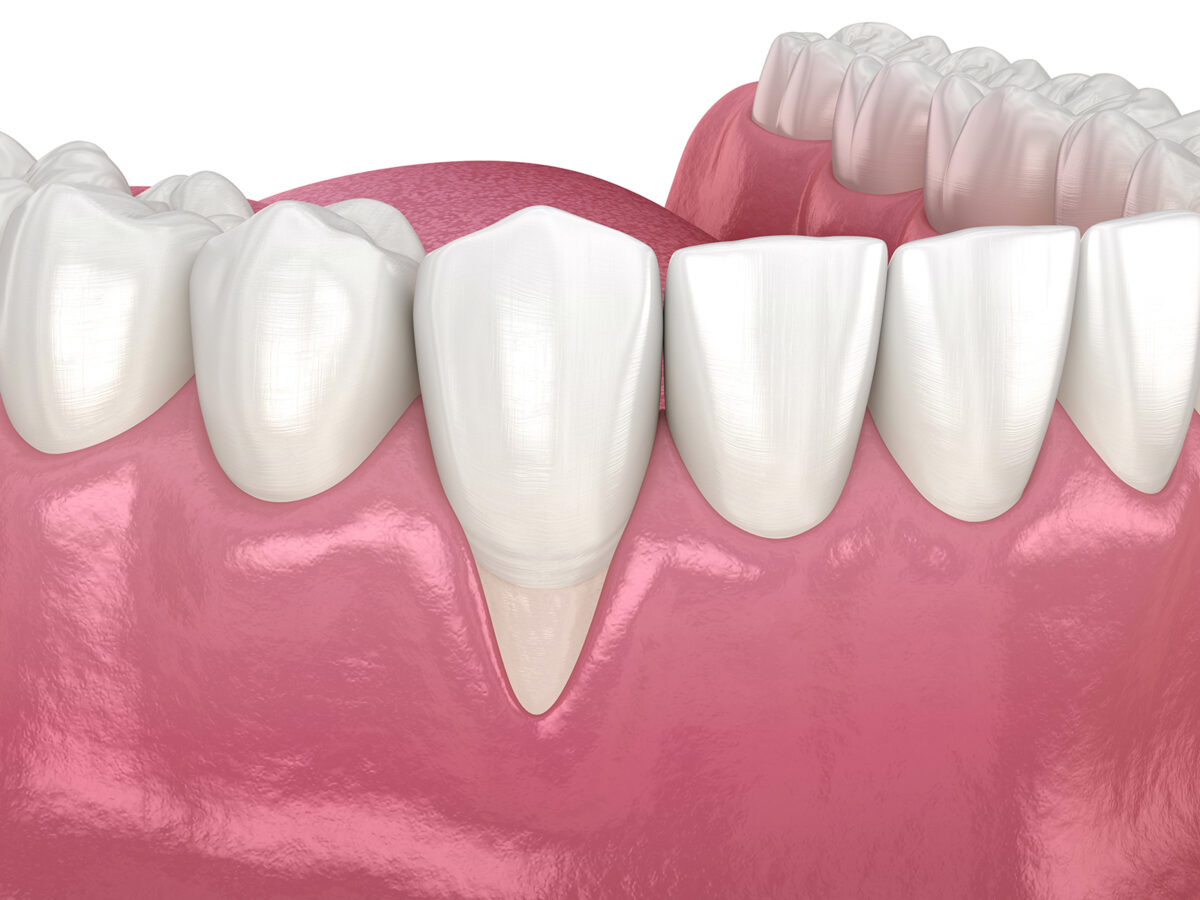Blog
Dental hygiene tips for healthy teeth & gums

What Causes Gum Recession?
Gum recession means a margin of your gum tissues has pulled away from your teeth, and the roots underneath are exposed. With gum recession, pockets, and gaps between the gumline and teeth are home to bacteria buildup. Receding gums can pose severe oral health issues and other complications. Your teeth can get infected and decay, and you might even lose teeth as the supporting structure of your teeth (including the bone tissue) gets adversely affected by receding gums.
Gum recession is a relatively common oral problem that happens gradually over time. So, you might only know your gums are receding once they become evident. Many factors contribute to this problem, such as aggressive brushing of teeth, poor oral hygiene, smoking, and even genetics. You can not reverse gum recession, but you can prevent it from worsening with the appropriate treatment.
In this article, we will closely examine what exactly gum recession is, what causes it, and some of the treatment options for this dental problem.
What is Gum Recession?
Gum recession is a disease when gum tissues pull away from your teeth and expose the roots underneath.
- This issue makes your teeth more vulnerable to bacteria buildup and cavities.
- If your gums have receded, you will experience more sensitivity in your teeth while eating or brushing.
- If the condition is not treated, it could lead to wiggly teeth and even tooth loss.
Who are More Susceptible to Gum Recession
Though this condition can affect people of all ages, it is mostly seen in people over sixty-five. Gum recession is a common issue; over eighty-five percent of people over sixty-five have this problem.
Someone with the following habits and conditions is more likely to develop this issue:
- If you have any orthodontic treatments, such as braces.
- If you have poor oral hygiene, which leads to periodontal disease.
- If you have got your tongue or lip pierced.
- If you brush your teeth aggressively.
- If you chew tobacco or consume excessive alcohol.
- Genetic disposition.
A few other health conditions that make your teeth prone to gum recession are:
- Diabetes
- Certain diseases, such as HIV and cancer.
- Hormonal changes during pregnancy, menstruation, menopause, etc.
- Medications that cause dry mouth.
Symptoms of Gum Recession
The most obvious sign of receding gum is when you find your teeth exposed and they appear taller. Some of the other signs of receding gums are:
- Teeth get sensitive to cold or hot foods and drinks, and sweets.
- There is pain or discomfort around the gum line.
- Your teeth feel sensitive during dental cleanings, brushing, or flossing.
Why Do Gums Recede?
Many factors contribute to receding gum issues. Some of the most common ones are:
- Periodontal disease – A mild bacterial infection can become a full-blown and more severe periodontitis if not cured. If proper oral hygiene is not maintained, plaque builds up in the mouth, which could harden into tartar, causing gum disease. Your gums get weakened due to this and recede. Peridontitis also affects the bone tissue that holds your teeth and keeps them anchored in their roots.
- Genetics – The thickness of gums is mostly an inherited genetic feature. Those born with thin gums are more susceptible to gum disease caused by plaque. Gum disease weakens the gums, which causes them to recede.
- Poor oral hygiene – If you have poor oral hygiene, you can develop receding gums due to two factors:
- If you do not brush and floss properly, the plaque will be left in your mouth, developing into tartar. Tartar is home to disease-causing bacteria that impact your gums, which recede towards the tooth’s root.
- If you maintain aggressive oral hygiene, like scrubbing the teeth hard, it could cause wear and tear of teeth and damage your gums.
- Hormonal changes – Puberty, menstruation, menopause, etc., are some of the times when most hormonal changes occur in women. These changes affect their oral health and make them prone to recession.
- Poorly-aligned or crooked teeth – If your teeth are not aligned uniformly, you constantly apply extra pressure on the jaw and gums, which can cause gum recession. Those with poorly-aligned teeth also tend to grind and clench their teeth a lot which puts excessive force on teeth and gums, making gums recede.
The most beneficial treatment for receding gums is professionally cleaning the affected area. During a deep cleaning, your dentist would remove tartar and plaque buildup and scale your teeth. By smoothening the exposed tooth’s root area, the dentist ensures that bacteria cannot attach to them easily.
